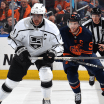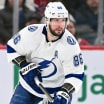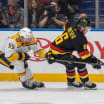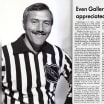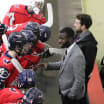The Pittsburgh Penguins' 2-0 win against the Nashville Predators in Game 6 of the Stanley Cup Final on Sunday made them the first repeat Cup champion since the Detroit Red Wings in 1997 and 1998.
The journey to a second straight Stanley Cup wasn't easy for the Penguins. Injuries thinned the defense and sapped some of Pittsburgh's offensive firepower. The secondary scoring never fully was there like it was a year ago.
5 Reasons: Why Penguins won Stanley Cup
Play of Sidney Crosby, bounce-back by goalie Matt Murray helped Pittsburgh to second straight championship
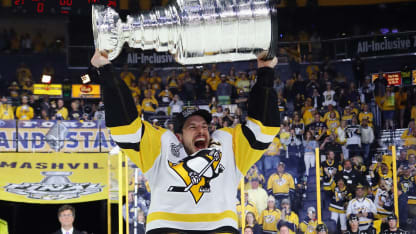
© Bruce Bennett/Getty Images





